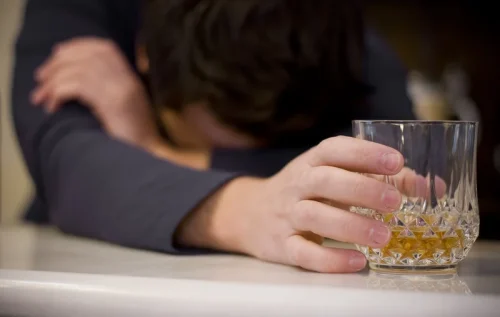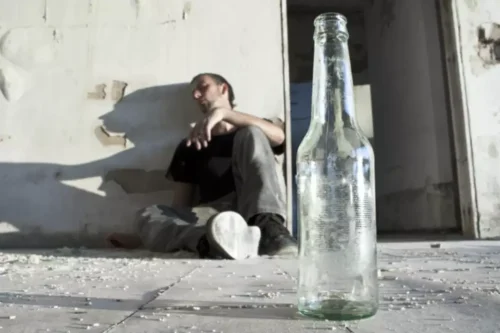
You may experience triggers both positively and negatively; keep in mind that negative triggers can have the biggest impact. When you choose to get treatment at North Georgia Recovery Center, you can rest assured knowing that you will be treated by licensed therapists in our state-of-the-art facilities. Every one of our team members is certified to address and effectively treat the issues that come along with addiction. Internal triggers refer to emotional or psychological states that evoke thoughts or cravings related to substance use. They originate from within and are often linked to personal feelings or memories.
Preventing a Relapse with Agape Treatment Center

If you or a loved one struggles with addiction to drugs or alcohol, you are not alone. At Canyon Vista Recovery Center, located in Mesa, Arizona, you will learn the skills needed to gain sobriety. Using a combination of medical, clinical, psychiatric, and holistic approaches, our highly skilled professionals will help you heal your mind, body, and spirit.
- Granted these feelings are positive, they can easily trigger relapses.
- At the same time, staying with family and friends who are not aware of how they can negatively impact the progress of a person in recovery can be harmful.
- Sometimes it is impossible to avoid experiencing an emotion, change how you feel, or stop yourself from remembering a certain memory.
- McGeehan also recommends grounding techniques, including square breathing or finger breathing, to help people return to the present moment when a trigger strikes them.
- By eliminating these people from the post-addiction life of recovery, many people are able to minimize the chance of relapsing due to associating with those who still use.
The Stages of Relapse

When it comes down to situations, everyone handles adversity differently. While some people manage difficult situations with ease, people in recovery can easily slip back into old habits external trigger examples when dealing with new situations. For instance, the death of a loved one can easily trigger a relapse in a recovering addict.

News & Events
In many cases, when you feel “normal” again, you might be overly confident that you can handle being in situations that serve as external triggers. That confidence is one of the most difficult internal triggers to manage. You have to make sure that you prepare yourself with the proper tools and coping methods to avoid being surprised by cravings. A trigger is social, psychological, and emotional situations and events that compel an addicted person to seek their substance of choice, eventually leading them to relapse. When an addicted person uses drugs or alcohol for a prolonged period of time, it changes the brain—eventually associating certain stimuli with the desire to drink or do drugs. People closest to the individual may set off cravings that eventually lead to a relapse.

- In the context of mental illness, referring to triggers usually means something that has brought on or worsened symptoms.
- When it comes to external triggers, active avoidance of certain places, breaking ties with specific individuals, and taking other conscious steps to limit exposure are advised.
- On average more than 85% of individuals are susceptible to relapse in the following year after drug and alcohol treatment.
- When triggered, emotions like anger, guilt, and irritability arise along with a decline in self-esteem, paving the way for various unhealthy behaviors.
- Self-awareness is the power to recognize and comprehend one’s own emotions, thoughts, and behaviors.
Asking the right questions and taking the correct steps can enable people in recovery to healthily transition to their normal life without risking a relapse. Every individual in recovery from a drug or alcohol addiction needs to work each day to keep their sobriety. During recovery, each person will encounter triggers that could result in relapse. Knowing and understanding how triggers work and being aware of your personal triggers are critical aspects of safeguarding your recovery. These internalized events are often harder to identify because they stem from within and are not directly linked to the current environment. They can arise unexpectedly and without a clear external cause, making them Alcoholics Anonymous more challenging to manage.
- Some researchers believe that the brain stores memories from a traumatic event differently from memories of a non-traumatic event.
- A key step in learning to recognize your triggers involves paying attention when situations generate a strong emotional response.
- When you choose to get treatment at North Georgia Recovery Center, you can rest assured knowing that you will be treated by licensed therapists in our state-of-the-art facilities.
- People may be one of the more easily-avoided external triggers, mainly if they are people that used to be involved in substance use with the individual.
Given that a trigger tends to be more distressing if it comes as surprise, a warning can help someone with PTSD or other mental health condition feel safe. Sometimes there are physical things or items that create the desire to use in an individual or otherwise trigger their addiction. The individual should have relapse prevention plans in place to help deal with the potential triggering caused by items they may encounter. This is important because it may not be possible or feasible to avoid them at all times. We must be aware of these potential triggers to maintain our recovery journey and stay on the path of sobriety. It is important to recognize these triggers and take steps to avoid them.
Learn more
By identifying the external stimuli, you can take steps to manage your environment better and reduce their impact. For internalized triggers, it often requires a deeper level of self-awareness and sometimes professional help to address the root causes. These triggers have been internalized over time through repeated exposure to certain experiences or through unresolved emotional conflicts.